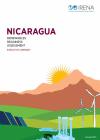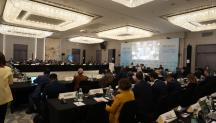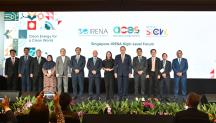

Renewables Readiness Assessment: Nicaragua (executive summary)
Newsletter
The executive summary is available in English.
El resumen ejecutivo está disponible también en español.
A Renewables Readiness Assessment (RRA) identifies the actions needed to overcome a country’s barriers to renewable energy deployment, with the International Renewable Energy Agency (IRENA) providing technical support and expertise to facilitate consultations among different national stakeholders. While the process helps to shape appropriate policy and regulatory choices, each country determines which renewable energy sources and technologies are relevant and consistent with national priorities.
In 2006-2012, Nicaragua attracted over USD 1.5 billion in clean energy investments. The country aims to further develop the use of all renewable energy sources, with a goal of generating 91% of its electricity from renewable sources by 2027.
Consultations pointed to the need to strengthen the legal and regulatory framework for renewable energy. Amendments are needed to Law No. 532, the Law for the Promotion of Electricity Generation with Renewable Sources, to provide more favourable conditions for wind, solar and biomass at all scales. Regulations must be enacted to take account of distributed power generation, stipulating system characteristics such as size or technology and purchase/sale tariffs. Off-grid solar and biomass solutions also require a regulatory framework. Nicaragua’s Master Plan for Geothermal Development could be updated with results from new geophysical studies.
Studies are needed to estimate the impact of different levels of variable renewable generation on the grid, with power-grid expansion plans to be updated accordingly. A capacity-needs assessment, followed by a strategy to address identified capacity gaps, would help to prepare Nicaragua’s local renewable energy workforce for the envisaged scale-up. Renewables can help to extend modern energy services (including electricity and improved cook stoves) to around 1.5 million people in the country still lacking access to these, particularly in rural areas.




